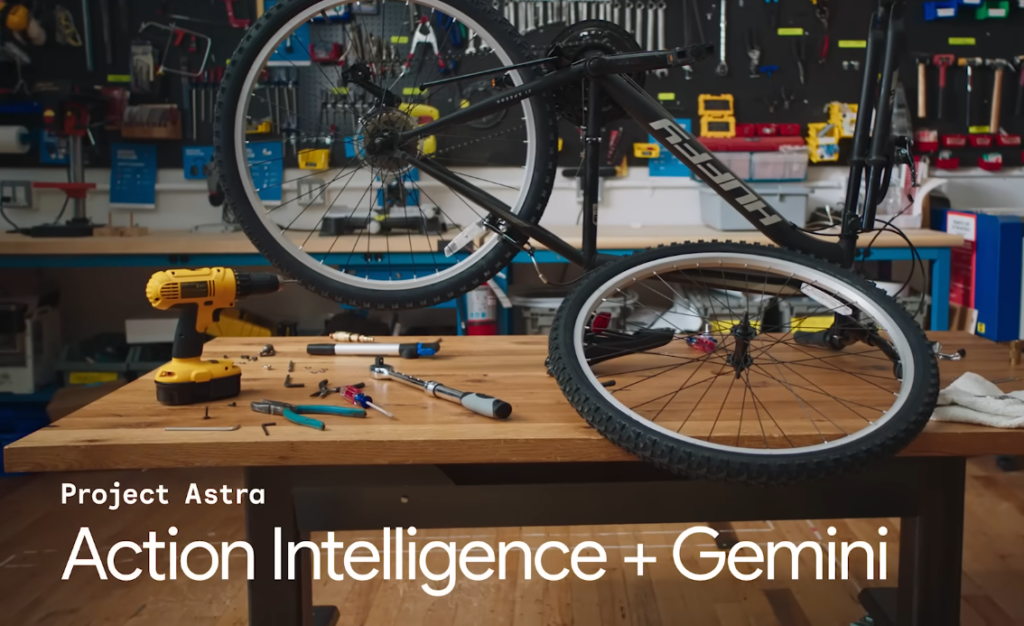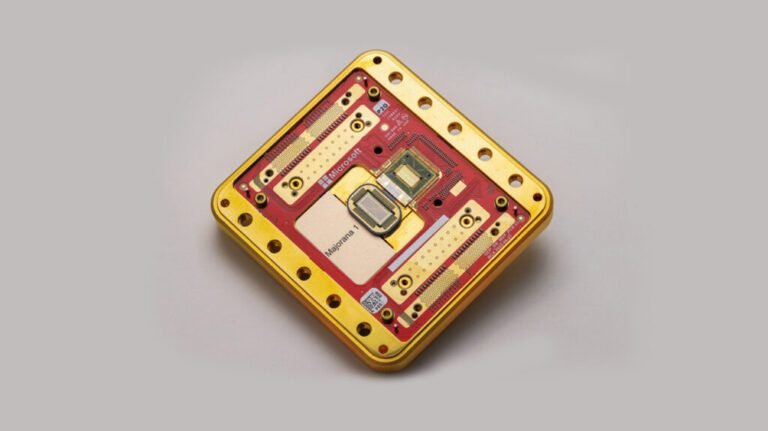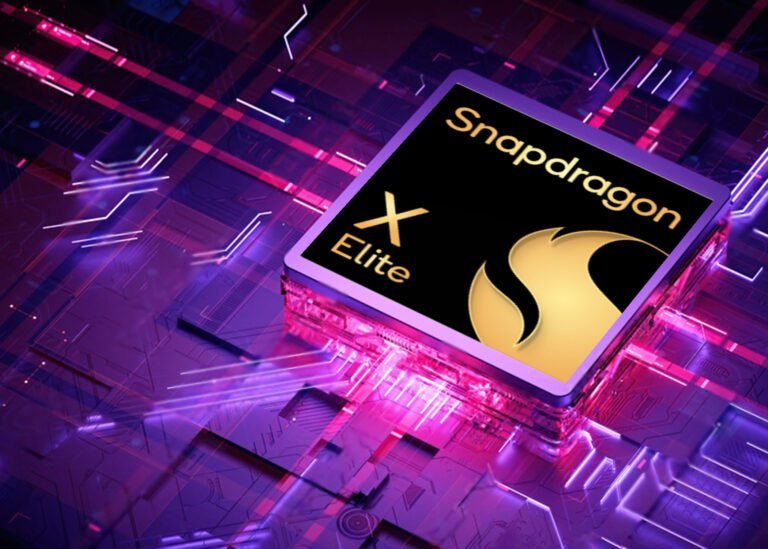Google's Project Astra: The Future of AI Assistants

Imagine an AI that doesn’t just answer questions but sees the world through your eyes, remembers where you left your keys, and helps you navigate life’s little challenges with ease. That’s the promise of Project Astra, Google’s ambitious research prototype that’s pushing the boundaries of what artificial intelligence can do. Unveiled by Google DeepMind, Project Astra is designed to be a universal AI assistant, blending cutting-edge technology with a human-like understanding of the world. In this post, we’ll dive into what Project Astra is, how it works, what it can do today, and where it’s headed in the future.
What Is Project Astra?
At its core, Project Astra is Google DeepMind’s vision for a universal AI assistant that can interact with the world in real time, using a combination of voice, video, and text inputs. Unlike traditional chatbots that rely on typed prompts or pre-programmed responses, Project Astra is built to “see” and “hear” the world through your smartphone’s camera or even prototype smart glasses. It’s powered by Gemini, Google’s family of multimodal AI models, which means it can process and understand text, images, audio, and video all at once. This multimodal approach is what sets Project Astra apart, making it feel less like a tool and more like a helpful companion who’s always by your side.
Think of it as a super-smart friend who can look at your surroundings, understand the context, and offer practical help. For example, during a demo at Google I/O 2024, a user pointed their phone at a London office and asked Project Astra where they were. The AI not only recognized the DeepMind office but also remembered that the user’s glasses were left on a desk next to an apple, details it picked up from earlier video frames. This ability to combine Action Intelligence, the capacity to observe, reason, and act in real time, makes Project Astra a game-changer in the AI landscape.
How Does Project Astra Work?
The magic of Project Astra lies in its ability to process multiple types of information simultaneously, a feat made possible by Gemini 2.0 and its predecessors. When you point your phone’s camera at an object, Astra analyzes the live video feed, combining it with audio input (like your voice) and any relevant context from past interactions. It can access Google services like Search, Maps, and Lens to provide accurate, context-aware responses. For instance, if you’re looking at a recipe book, Astra can read the ingredients, notice if you’re missing something, and even suggest substitutions based on what’s in your pantry.
One of the biggest engineering challenges was reducing latency to make conversations feel natural. Google DeepMind’s team spent months optimizing the system to ensure near-instant responses, even when processing complex inputs like live video. The result is an AI that can keep up with you, whether you’re asking it to identify a plant, translate a sign in a foreign language, or guide you through fixing a bike. Astra also has a memory feature, retaining up to 10 minutes of session data and key details from past conversations, which allows it to provide personalized answers without needing constant re-prompting.
This seamless integration of Action Intelligence means Astra doesn’t just react, it anticipates your needs. For example, if you’re cooking and ask about a spice, it might remind you where you stored it last or check Google Maps for nearby stores if you’re out. It’s like having a little parrot on your shoulder, as Google DeepMind’s research director Greg Wayne described, “hanging out with you and talking to you about the world.”
What Can Project Astra Do Today?
As of May 2025, Project Astra is still a research prototype, accessible only to a limited group of trusted testers, including those with visual impairments through a partnership with Aira. But the demos and early feedback paint an exciting picture of its capabilities. Here’s a glimpse of what Astra can do today:
-
Real-Time Visual Understanding: Point your phone at an object, and Astra can identify it, describe its context, or answer questions about it. For example, in a demo, Astra looked at a row of wine bottles and suggested the best pairing for a chicken curry recipe, correcting itself when prompted to double-check.
-
Seamless Conversations Across Devices: Astra works on Android phones and prototype smart glasses, with cross-device memory that lets you switch from phone to glasses without losing the thread of your conversation. Imagine asking Astra about a marathon training plan on your phone, then continuing the chat through glasses while you’re out running.
-
Integration with Google Services: Astra can tap into Google Search, Maps, Calendar, and Gmail to perform tasks like finding a nearby restaurant, scheduling a meeting, or pulling up directions. It can even analyze on-screen content, like summarizing an article or explaining code you’re looking at.
-
Support for Accessibility: In collaboration with Aira, Astra is being tailored to assist blind and low-vision users. For example, musician Dorsey Parker, who has 8% vision, uses Astra to describe his surroundings and navigate new places, making it a powerful tool for accessibility.
-
Multilingual and Natural Dialogue: Astra supports 24 languages, detects accents and emotions, and ignores background noise to focus on your voice. It can handle interruptions and refine its answers, making interactions feel more human.
These features are already rolling out to Gemini Live for Gemini Advanced subscribers, signaling that Astra’s technology is starting to reach a broader audience, albeit in a phased manner. For instance, the “Share Screen With Live” and “Gemini Live With Video” features let users share their phone screen or camera feed to get real-time assistance, like choosing ceramic tiles for a mid-century modern look or pairing clothes for an outfit.
The Role of Gemini in Powering Astra
None of Project Astra’s wizardry would be possible without Gemini, Google’s family of multimodal AI models. The latest iteration, Gemini 2.0, introduced in December 2024, is a powerhouse of Action Intelligence, with advanced reasoning, faster processing (40% faster than previous models), and improved efficiency. Gemini 2.0 can handle complex tasks like coding, math, and multimodal reasoning, making it the backbone of Astra’s ability to understand and act on diverse inputs.
Gemini’s long context window, up to 2 million tokens, allows Astra to process vast amounts of information, like analyzing a 1,500-page document or remembering details from a 10-minute video session. This is a big leap from earlier AI assistants, which often struggled with context or required multiple prompts to get the job done. Gemini 2.0 Flash, a lighter version, ensures low-latency responses for everyday tasks, while Gemini 2.5 Pro powers advanced features like “Deep Think” for complex queries. These advancements make Astra not just smart but practical for real-world use.
What’s the Future of Project Astra?
Looking ahead, Project Astra could redefine how we interact with technology, moving us closer to a world of “ambient computing” where AI is seamlessly woven into daily life. Google’s vision is to make Astra a universal assistant that’s proactive, teachable, and personalized, capable of handling mundane tasks and sparking moments of delight. Here are some possibilities for its future:
-
Wider Accessibility: While currently limited to trusted testers, Astra’s features are gradually rolling out to Gemini Live for Android users with Gemini Advanced or Google One AI Premium subscriptions. By late 2025, we might see broader access, potentially on iOS and more Android devices. Google’s also expanding its trusted tester program, including for prototype glasses, so expect more real-world feedback to shape its evolution.
-
Enhanced Personalization: Astra’s memory capabilities could evolve to create highly tailored experiences, like planning a vacation based on your travel history or suggesting recipes based on your dietary preferences. Google’s already experimenting with custom “Gems” in Gemini Advanced, which could become a cornerstone of Astra’s personalization.
-
Industry Applications: Beyond personal use, Astra could transform industries. In healthcare, it might analyze medical images or assist with drug discovery. In education, it could offer personalized tutoring. In retail, imagine Astra-powered agents handling customer queries or optimizing supply chains. Its ability to process real-time data and act autonomously makes it a versatile tool for businesses.
-
Ethical and Safe AI: Google is working with its Responsibility and Safety Committee to address privacy concerns, such as preventing users from sharing sensitive information unintentionally. Features like session deletion and protections against malicious prompt injection (e.g., via Project Mariner) show a commitment to responsible AI development. As Astra scales, expect robust safeguards to maintain user trust.
Some Challenges That Need Attention
While Project Astra is thrilling, it’s not without hurdles. The technology is still glitchy, as seen in demos where Astra needed corrections to identify recipe ingredients accurately. Scaling it to billions of users while maintaining low latency and privacy will be a massive challenge. There’s also the question of accessibility. Right now, advanced features are locked behind paid subscriptions like Gemini Advanced, which may limit its reach. And as with any AI that “sees” the world, privacy concerns loom large. Google’s proactive approach to safety is encouraging, but public trust will depend on transparent and user-friendly privacy controls.
Why Should You Care About Project Astra?
Project Astra isn’t just another AI tool, it’s a glimpse into a future where technology feels less like a gadget and more like a partner. It’s exciting to imagine an assistant that can help with everything from cooking dinner to navigating a new city. Its integration with Gemini and focus on Action Intelligence make it a bold step toward artificial general intelligence (AGI), where machines can think and act more like humans. As Demis Hassabis, CEO of Google DeepMind, put it, Astra is about creating an AI that “understands and responds to the complex and dynamic world just like people do.”
For now, Project Astra is a prototype, but its features are already enhancing Gemini Live and inspiring new ways to interact with technology. Whether you’re a tech enthusiast dreaming of sci-fi-like assistants or someone who just wants help finding their glasses, Astra’s potential is undeniable. Want to try it out? You can join the waitlist for Google’s trusted tester program at deepmind.google or explore Gemini Live with a Gemini Advanced subscription to get a taste of what’s to come.
The road ahead for Project Astra is filled with possibilities and a few challenges. But one thing is clear: Google is betting big on a future where AI doesn’t just answer questions but transforms how we live.










